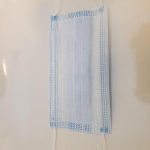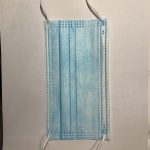It took around two months for Canada’s federal health leaders to come around to the case for face mask use en masse when physical distancing is an issue to curb the spread of COVID-19.
Some experts are now suggesting going further with goggles or face shields, even if they make people look a bit “dorky”.
World Health Organization officials stated this week that its infection prevention control network is discussing face shields. A University of Iowa team is already urging their adoption.
If included in the bundle of other public health measures, simple face shields cobbled together with materials found in craft and office supply stores could help drive COVID-19 infections to manageable levels.

The layered cloth masks can filter some of the tiny, virus-sized particles that fly out when people cough, sneeze, breathe or talk. With face shields, they might provide a superior option.
The face shields can be easily cleaned with soap and water or household disinfectants and “reused indefinitely”. The face shields are also comfortable to wear, block the virus from entering “portals” and “reduce the potential for autoinoculation” which means implanting the virus into our bodies after touching a contaminated surface, by preventing the wearer from touching his/her face.
For more information about this story, click here.
LEARN MORE
Check out the available face masks for sale by visiting our face mask sale page.
Our courses maintain social distancing measures with reduced class sizes to maintain the minimum 2 meters apart along with the mandatory use of face masks and regular temperature checks. The venue of the courses undergo regular, enhanced cleaning and disinfection routines.
For more information about face masks, check out these sources:
https://www.bbc.com/news/health-51205344
https://www.healthline.com/health/coronavirus-mask
https://www.washingtonpost.com/lifestyle/2020/09/30/mask-guidelines-covid-faq/?arc404=true

